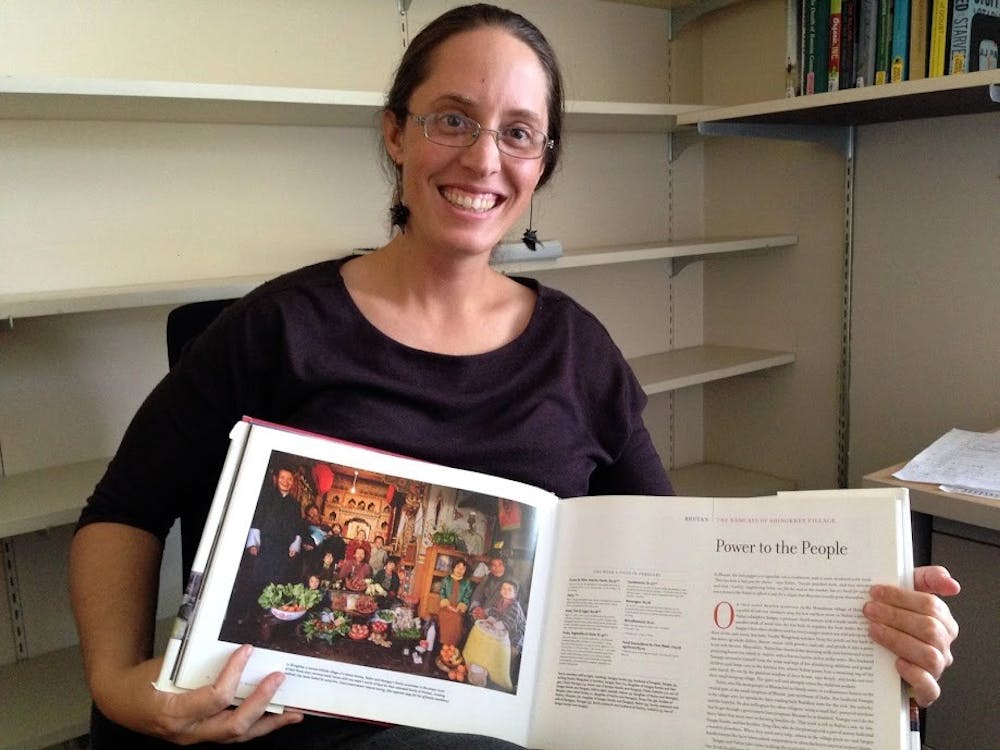“Hungry Planet” lay open on Professor Heather Carpenter’s lap.
“I love these,” she said as she flipped through photographs of different families standing around a week’s worth of food. Eventually, her students will have to take a similar photo, one of their own family’s food intake during a given week.
The book, by Peter Meel and Faith D’Aluiso, has inspired one of the projects for a new seminar being offered at the University of Portland: The Science of a Sustainable Gourmet.
Carpenter, now a full-time professor in University of Portland’s Environmental Science Department, spent this past summer designing the course. While there is no actual cooking in the classroom, this class was created to help students understand where their food comes from and the impact their choices have on their health and the environment.
Students will do an in-depth analysis of their eating habits by completing a number of individual and group projects. Carpenter expects that some of her students may feel challenged when faced with the reality of how their food is processed.
These can be daunting lessons to teach, so Carpenter does her best to practice what she preaches in the classroom; she participates in all of the assignments she gives her students.
One of these projects is entitled “My Worst Favorite Food.” She is prompting students to research one of their favorite foods and find out how it is manufactured.
“We all love something that is horrible, so let’s just kind of have fun with this,” Carpenter said.
Carpenter’s worst favorite food: bananas and nutella. Senior business major Sarah Espinosa, who is taking the class, said she will be presenting on tater tots, and that she is pleased she will be learning where this food originates.
“This class has been interesting because it encourages us to be mindful as consumers and human beings on how our decisions impact the earth,” said Reis Haitsuka, a junior psychology and social work major also in the class. “It answers questions that we otherwise would not have asked because the truth about where our food comes from and how it’s made can be unsettling.”
Haitsuka said she is most excited for the “Feeding Myself Project,” where students are asked to either create a local meal plan or try a two-week diet change.
Freshman Ruby Beauchamp, a communication studies major, said she is so captivated by the class that she believes it should be a required course for all students.
“The course material is so important to know in light of the environmental problems we are facing,” Beauchamp said. “The information relates directly to our generation, whether we want to admit it or not.”
Overall, Carpenter’s goals are less focused on dieting and making significant shifts in students’ eating habits, and more on getting students to be conscious of their food choices.
Carpenter says there is no singular, overall answer. She would much rather her students find their “own best answer” moving forward, as they learn more about the reality of food industries and the interconnectedness of the global environment.








